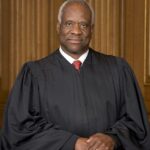JUSTICE O'CONNOR, with whom JUSTICE THOMAS joins, dissenting.
Notwithstanding its assertions to the contrary, the Court has diminished the States' regulatory flexibility by creating an impossible situation for those subject to state regulation. Even when a State has a "clearly articulated policy" authorizing anticompetitive behavior-which the Federal Trade Commission concedes was the case here-and even when the State establishes a system to supervise the implementation of that policy, the majority holds that a federal court may later find that the State's supervision was not sufficiently "substantial" in its "specifics" to insulate the anticompetitive behavior from antitrust liability. Ante, at 635. Given the threat of treble damages, regulated entities that have the option of heeding the State's anticompetitive policy would be foolhardy to do so; those that are compelled to comply are less fortunate. The practical effect of today's decision will likely be to eliminate so-called "negative option" regulation from the universe of schemes available to a State that seeks to regulate without exposing certain conduct to federal antitrust liability.
The Court does not dispute that each of the States at issue in this case could have supervised respondents' joint ratemaking; rather, it argues that "the potential for state super VISIOn was not realized in fact." Ante, at 638. Such an after-the-fact evaluation of a State's exercise of its supervisory powers is extremely unfair to regulated parties. Liability under the antitrust laws should not turn on how enthusiastically a state official carried out his or her statutory duties. The regulated entity has no control over the regulator, and very likely will have no idea as to the degree of scrutiny that its filings may receive. Thus, a party could engage in exactly the same conduct in two States, each of which had exactly the same policy of allowing anticompetitive behavior and exactly the same regulatory structure, and discover afterward that its actions in one State were immune from antitrust prosecution, but that its actions in the other resulted in treble-damages liability.
Moreover, even if a regulated entity could assure itself that the State will undertake to actively supervise its rate filings, the majority does not offer any guidance as to what level of supervision will suffice. It declares only that the State must "pla[y] a substantial role in determining the specifics of the economic policy." Ante, at 635. That standard is not only ambiguous, but also runs the risk of being counterproductive. The more reasonable a filed rate, the less likely that a State will have to play any role other than simply reviewing the rate for compliance with statutory criteria. Such a vague and retrospective standard, combined with the threat of treble damages if that standard is not satisfied, makes "negative option" regulation an unattractive option for both States and the parties they regulate.
Finally, it is important to remember that antitrust actions can be brought by private parties as well as by government prosecutors. The resources of state regulators are strained enough without adding the extra burden of asking them to serve as witnesses in civil litigation and respond to allegations that they did not do their job.
For these reasons, as well as those given by THE CHIEF JUSTICE, I dissent.

